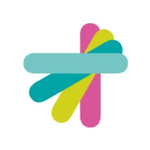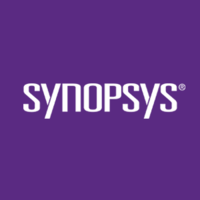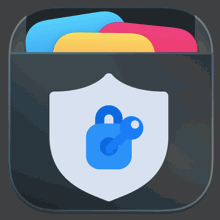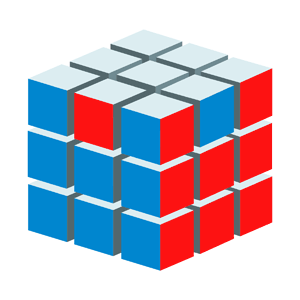Description

Kiuwan

Synopsys
Comprehensive Overview: Kiuwan vs Synopsys
Kiuwan and Synopsys are key players in the application security and software quality markets, each offering a suite of tools designed to enhance software development and maintenance. Here’s a comprehensive overview comparing these two platforms:
a) Primary Functions and Target Markets
Kiuwan
Primary Functions:
- Static Application Security Testing (SAST): Kiuwan provides static code analysis to identify potential vulnerabilities in the source code.
- Software Composition Analysis (SCA): It examines both proprietary and third-party components for security vulnerabilities, ensuring open-source compliance.
- Code Quality Analysis: It assesses code quality against industry standards and best practices, facilitating high-quality software development.
Target Markets: Kiuwan primarily targets software development teams, IT departments, and businesses looking to integrate security and quality checks into their DevOps processes. It is well-suited for organizations of various sizes across industries that require quick, actionable insights into their codebase’s security and compliance status.
Synopsys
Primary Functions:
- Static Analysis (SAST): Through Coverity, it identifies defects and security vulnerabilities in source code.
- Software Composition Analysis (SCA): Black Duck helps manage open-source usage and identifies potential vulnerabilities in dependencies.
- Interactive Application Security Testing (IAST) and Dynamic Application Security Testing (DAST): Tools like Seeker and Tinfoil Security offer dynamic analysis capabilities for identifying security issues during runtime.
Target Markets: Synopsys targets a wide range of industries, from financial services to healthcare and technology, primarily focusing on enterprises and organizations with comprehensive security requirements throughout the software development lifecycle. It serves large-scale operations that need expansive software security and quality solutions integrated within their processes.
b) Market Share and User Base
Kiuwan: Kiuwan's market share is growing among small to medium-sized enterprises (SMEs) and is recognized for its ease of use and integration capabilities. While it is not the leader in market share when compared to larger competitors, Kiuwan has earned a dedicated user base due to its affordable pricing and robust capabilities in code analysis.
Synopsys: Synopsys holds a significant portion of the market share, being one of the leaders in application security testing solutions. Its products are widely adopted by large enterprises due to their comprehensive feature set and reputation for thorough vulnerability detection. Synopsys' user base includes some of the largest global companies, underscoring its position as a preferred choice for enterprise-level application security.
c) Key Differentiating Factors
-
Comprehensive Toolset:
- Synopsys offers a broader range of capabilities beyond just SAST and SCA, including IAST and DAST, making it suitable for comprehensive security assessments across the software lifecycle.
- Kiuwan focuses primarily on SAST and SCA, excelling in ease-of-use and integration with CI/CD pipelines but offering less in terms of broader runtime security testing tools.
-
Ease of Integration:
- Kiuwan is often praised for its straightforward integration into DevOps environments and compatibility with various CI/CD tools, making it a flexible option for teams looking to add security checks seamlessly.
- Synopsys also integrates well but is known for a more complex setup due to its extensive feature set, which might require more effort and resources to fully leverage.
-
Target Audience and Pricing:
- Kiuwan is more attractive to SMEs and teams with budget constraints, offering cost-effective solutions with competitive features for its target market.
- Synopsys caters to large enterprises with extensive needs for security and compliance, often coming with a higher price tag that corresponds to its extensive features and scalability.
In summary, while both Kiuwan and Synopsys provide robust application security solutions, their differentiators lie in the breadth of features, ease-of-integration, and target market sizing. Kiuwan appeals to smaller to mid-sized teams wanting efficient code analysis tools, whereas Synopsys serves larger enterprises needing a wide range of security testing solutions integrated into their software development lifecycle.
Contact Info

Year founded :
2012
+1 732-895-9870
Not Available
United States
http://www.linkedin.com/company/kiuwan

Year founded :
Not Available
Not Available
Not Available
Not Available
Not Available
Feature Similarity Breakdown: Kiuwan, Synopsys
When comparing Kiuwan and Synopsys, both of which are well-regarded in the field of application security testing, it's important to note the similarities and differences in their features, user interfaces, and any unique aspects they possess. Here's a breakdown:
a) Core Features in Common
-
Static Application Security Testing (SAST): Both solutions provide thorough static code analysis to detect vulnerabilities early in the development cycle. This helps in identifying security issues in source code without executing the program.
-
Open Source Component Analysis: Kiuwan and Synopsys offer open source analysis features to identify vulnerabilities in third-party libraries, ensuring the security of open source components.
-
Compliance and Policy Management: Each platform includes capabilities for policy management and compliance checks against various standards such as OWASP, PCI-DSS, and others.
-
Integration with Development Tools: They both support integration with popular development environment tools and CI/CD pipelines, enhancing DevSecOps practices.
-
Reporting and Analytics: Kiuwan and Synopsys offer detailed reporting and analytics to provide insights into security risks and code quality.
b) Comparison of User Interfaces
- Kiuwan:
- Known for its user-friendly interface, Kiuwan provides dashboards with high-level overviews and drill-down capabilities for detailed analysis.
- The interface is generally intuitive with a modern design, making it accessible for both technical and non-technical users.
- Synopsys:
- Synopsys tools can have a steeper learning curve, often reflecting their comprehensive and enterprise-level capabilities.
- While not as visually intuitive as Kiuwan, Synopsys’ interface is robust and detailed, providing thorough control and customization options for advanced users.
c) Unique Features
-
Kiuwan:
- Code Quality Analysis: Apart from security, Kiuwan also emphasizes code quality, providing metrics and measures to improve maintainability, efficiency, and performance of code.
- Cloud-Native Solution: Kiuwan operates natively in the cloud, which can simplify deployment and maintenance, offering flexibility and scalability.
-
Synopsys:
- Comprehensive Security Suite: Beyond just SAST and open source analysis, Synopsys offers a broader range of solutions including dynamic analysis and fuzz testing (through products like Black Duck and Coverity), making it a more comprehensive choice for large enterprises.
- Mature Integrations and Support for Legacy Code: Synopsys often provides better support for legacy languages and systems, making it a preferred option for organizations with older code bases.
Conclusion
While both Kiuwan and Synopsys offer robust security testing features, your choice might depend on specific needs such as user interface preference, additional code quality analysis features, or comprehensive security suite requirements. Kiuwan might be more appealing for those who prefer ease of use, while Synopsys may attract organizations needing extensive security solutions and support for complex, legacy environments.
Features

Quality Assurance
Compliance
Integration and Reporting
Code Security

Security and Compliance
Development and Testing Tools
Software Quality and Performance
Best Fit Use Cases: Kiuwan, Synopsys
Kiuwan and Synopsys are both prominent players in the application security domain, providing solutions for analyzing and securing software code. They cater to different types of businesses, projects, and scenarios based on their unique strengths and offerings.
a) For what types of businesses or projects is Kiuwan the best choice?
Kiuwan:
-
Small to Medium-Sized Enterprises (SMEs): Kiuwan is often seen as a robust choice for SMEs because it offers cost-effective services with comprehensive analytics tailored for businesses that may not have vast resources.
-
Agile Development Teams: Kiuwan supports integration with various development tools and CI/CD pipelines, making it ideal for agile teams that need seamless and continuous integration of security checks within their development processes.
-
Companies Seeking Cloud Solutions: With its cloud-based offerings, Kiuwan enables businesses to perform security testing and code analysis without the need for significant local infrastructure, appealing to companies transitioning to or operating within cloud environments.
-
Organizations Focused on Speed and Flexibility: Kiuwan provides rapid insights into security vulnerabilities and other code-quality metrics, benefiting teams that need quick turnarounds and flexible analysis capabilities.
-
Compliance-Focused Projects: For businesses particularly concerned with compliance and regulatory standards, Kiuwan’s ability to map findings against these requirements (such as OWASP, PCI-DSS, and GDPR) can be highly beneficial.
b) In what scenarios would Synopsys be the preferred option?
Synopsys:
-
Large Enterprises: Synopsys offers a wide range of advanced capabilities suitable for larger organizations that require comprehensive and scalable application security solutions.
-
Complex and Diverse Tech Stacks: With its ability to analyze a broad range of languages and platforms, Synopsys is well-suited for enterprises with diverse and complex tech stacks.
-
High-Risk or Highly Regulated Industries: Industries such as finance, healthcare, and government sectors, where security is paramount and heavily regulated, can leverage Synopsys's sophisticated and in-depth analysis tools to ensure strict security compliance and risk management.
-
Organizations Needing Comprehensive Security Programs: Synopsys provides a suite of products that go beyond static analysis to include dynamic analysis, interactive application security testing (IAST), and software composition analysis (SCA), making it ideal for organizations that need end-to-end application security solutions.
-
Mature DevOps Implementations: Synopsys integrates well with mature DevOps and DevSecOps processes, supporting automated security testing at various stages of the development pipeline to ensure security is embedded throughout the software lifecycle.
d) How do these products cater to different industry verticals or company sizes?
-
Industry Verticals:
- Kiuwan tends to cater more effectively to industries where quick integration, ease of use, and cost-effectiveness are significant. This includes tech startups, SMEs in retail, media, and other sectors where security is crucial but resources may be limited.
- Synopsys, with its comprehensive and multi-layered security offerings, appeals to industries that require stringent security measures such as financial services, healthcare, automotive, and aerospace. These industries benefit from Synopsys’s wide array of tools and deep security insight.
-
Company Sizes:
- Small to Mid-Sized Companies: Kiuwan’s pricing and scalability make it accessible for smaller companies that need robust security without the overhead of more extensive enterprise solutions.
- Large Enterprises: Synopsys is particularly beneficial for large enterprises that require integration across vast and complex IT environments, offering the scalability, integration abilities, and comprehensive services needed to manage security effectively across entire organizations.
By understanding these characteristics and aligning them with the needs of specific projects or organizational structures, companies can select the most appropriate tool for their security needs.
Pricing

Pricing Not Available

Pricing Not Available
Metrics History
Metrics History
Comparing teamSize across companies
Conclusion & Final Verdict: Kiuwan vs Synopsys
When evaluating Kiuwan and Synopsys for application security testing and software risk management, it's essential to consider their unique offerings, strengths, and limitations. Below is a conclusion and final verdict, addressing all factors and providing guidance for making an informed decision between the two products.
Conclusion and Final Verdict:
a) Best Overall Value:
Synopsys generally offers the best overall value for enterprises seeking comprehensive application security solutions. With its extensive range of tools and services, Synopsys provides robust security testing capabilities that cover a wide array of needs, from static and dynamic analysis to software composition analysis and more. Its deep integration options, strong support network, and consistent performance make it a preferred choice for large organizations with complex security requirements.
b) Pros and Cons of Each Product:
Kiuwan:
-
Pros:
- Cost-Effective: Kiuwan can be more budget-friendly, making it suitable for small to medium-sized businesses.
- Ease of Use: It offers an intuitive interface and easier setup compared to some other tools.
- Cloud-Based Flexibility: The cloud-based model supports accessibility and scalability.
- Comprehensive Language Support: Provides analysis for a wide range of programming languages.
- Quick Setup and Deployment: Fast onboarding with minimal disruption to existing workflows.
-
Cons:
- Less Comprehensive Feature Set: May not cover as wide a range of use cases as Synopsys.
- Limited Advanced Features: Some advanced security features and integrations might be lacking compared to more sophisticated tools.
Synopsys:
-
Pros:
- Comprehensive Suite: Extensive portfolio of security testing tools, including static (SAST), dynamic (DAST), and interactive (IAST) application security testing.
- Enterprise-Grade: Designed for large-scale deployments, suitable for enterprises with complex needs.
- Integration Capabilities: Strong integration with other development and security tools.
- Support and Documentation: Offers strong customer support and extensive documentation.
- Rich Feature Set: Access to a wide array of advanced security testing tools and services.
-
Cons:
- Higher Cost: Typically more expensive, which can be a deterrent for smaller businesses.
- Complexity: The extensive feature set may lead to a steeper learning curve and require more technical expertise.
- Setup and Maintenance: Can require more time and resources for setup and ongoing maintenance compared to lighter solutions.
c) Recommendations for Users:
-
Assess Your Needs: Start by evaluating the specific needs of your organization. If you are a small to medium-sized business with budget constraints and require a straightforward, easy-to-deploy solution, Kiuwan may be the appropriate choice. On the other hand, if you are an enterprise with complex security requirements and the budget to match, Synopsys is likely to provide greater long-term value due to its comprehensive feature set and scalability.
-
Consider Integration and Usage: Consider the existing tools in your development and security pipeline. If integration with other systems is crucial, Synopsys may offer more seamless and sophisticated options. However, if a quick and easy deployment is desired with minimal disruption, Kiuwan might meet those needs better.
-
Evaluate Long-Term Goals: Think about your organization's long-term security strategy. If you anticipate growth and increased security needs, investing in a more robust platform like Synopsys could be more cost-effective over time. However, if you prioritize cost savings and simplicity, Kiuwan is a viable option.
In conclusion, both Kiuwan and Synopsys have their strengths and are suited to different organizational needs. By aligning your choice with your specific requirements, budget, and long-term goals, you can make a well-informed decision that maximizes value for your business.
Add to compare
Add similar companies



